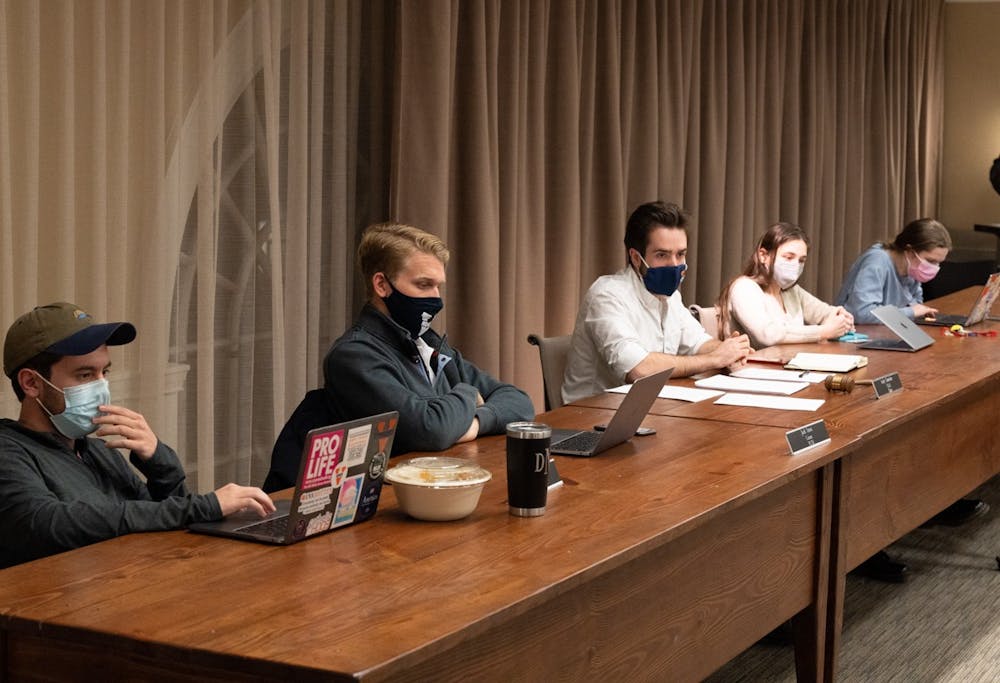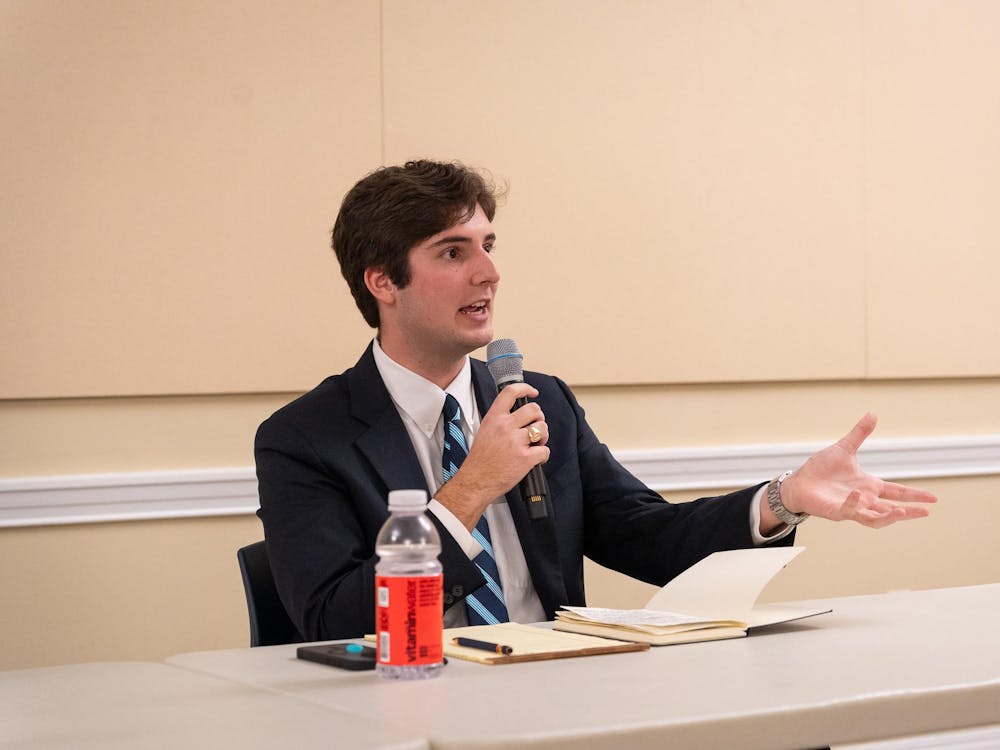Members of the Honor Committee discussed plans for this year’s Popular Assembly and voiced concerns with the Contributory Health Impairment process at Sunday’s meeting.
Held biennially, Honor’s Popular Assembly allows the University community to learn more about the University’s Honor system and provide feedback to the Committee through open, public conversations with members. Within the last few years, students and broader community members have expressed frustration with the Honor system — more specifically, the punitive nature of the single-sanction system and racial disparities.
Honor’s Statistical Transparency Reporting Portal — which displays data on Honor reports and cases over the past eight semesters — and Bicentennial Report showed disparities in cases brought against students. Asian American students comprised 27.1 percent of all reports despite making up about 12 percent of the student population in the same period. Black students are also over-represented by 2.7 percentage points, at 8.7 percent of reported cases but only 6 percent of University students.
Honor educators work as liaisons between the Honor Committee and the larger University community to communicate information about the Committee. They will teach about the past, present and future of Honor during the Popular Assembly, which is scheduled for Feb. 27 through March 4.
Rep. Caitlin Kreinheder, vice-chair for education and fourth-year Architecture student, expressed excitement for the Popular Assembly, which is themed “Honor — Past, Present, and Future.”
“[We’ll be] talking about what has happened with Honor in the past, where does Honor stand today and how will students take Honor in the future,” Kreinheder said.
Andy Chambers, chair of the Honor Committee and fourth-year College student, then opened the floor to ideas regarding how to encourage attendance at Honor meetings.
One idea put forth by Chambers included creating a bylaw that would institute an automatic parole standard of a member after a certain number of missed meetings.
For support officers, a standards panel could remove an officer for failing to complete their duties. Any standards referral automatically goes to the Chair of the Committee — unless the referral is against the Chair, in which case it goes to the Board of Vice Chairs. The Chair or Vice Chairs then hold discretionary power to transfer the referral to an appointed standards panel which hears up to ten minutes of arguments in favor and up to ten minutes opposed and makes a decision.
However, elected Committee representatives cannot be unilaterally removed and a University-wide recall election would be required to remove a representative.
If the committee desired to remove an elected representative not fulfilling their duties, one additional option explained by Chambers would be the Committee submitting a constitutional referendum allowing the Committee to remove Committee representatives without a full recall election. Without quorum at Sunday’s meeting, Chambers said the referenda would have to be tabled.
In response, Benos expressed that his concerns lie primarily in ensuring that the Committee’s needs regarding active cases are sufficiently met.
“In my mind, it is more critical to make sure that our case processing needs are met first,” Benos said.
As Sunday’s meeting did not meet quorum, alterations to the bylaws or Constitution could not be voted on by the Committee. The last time the Committee met quorum was at a Nov. 3 meeting, where the proposed referenda concerning single sanction and the informed retraction fell short of passing by five votes. According to Chambers, the current inability to reach quorum is uncommon for the Honor Committee.
“It's rare that we don't have quorum in a given year, and we haven’t had quorum in a while, which is remarkably strange,” Chambers said during the meeting.
The Committee then addressed the current process for hearings involving Contributory Health Impairments, which is any health impairment that causes a student to commit the infraction they are being investigated for. Discussion focused on the length of the process and lack of understanding around what a CHI is.
Currently, a CHI is any mental disorder or medical condition that either causes a student to be unable to control their actions surrounding an alleged offense, or to have been so impaired at the time of the offense that the student could not have had the intent to commit the violation.
Any student claiming a CHI is investigated by University administration — not the Honor Committee. These students must schedule a meeting with a University dean and obtain an expert assessment — written documentation of the CHI including relevant medical history by a qualified professional — backing up their claim. If the dean approves the student’s reasoning, the student will undergo a hearing in front of a panel of psychiatrists and/or psychologists who similarly make a decision regarding the validity of the CHI claim.
If at any point in this process the student is found by either the dean or the panel to not have a valid CHI, the case is returned to the Honor Committee. If the panel finds that the student has established a CHI, the Honor investigation is dismissed and the panel can place restrictions on the student including suspensions from the University or from certain University activities, unless the student can establish that they are no longer at risk of committing another Honor offense.
Chambers and Rep. Christopher Benos, third-year Law student, expressed concern over the length of time it takes for CHIs to be investigated by University administration. As it stands, the process can take several months.
Chambers further voiced frustration regarding students potentially submitting fraudulent CHIs to get out of an Honor trial.
“[One CHI] last year I didn’t get back for eight months, and it failed — it came back to us — so this is a huge time sink,” Chambers said. “And a lot of students are taking it by way of trying to avoid the Honor process.”
In contrast, Rep. Holly Torsilieri, fourth-year Medicine student, said she was concerned about accusing students of claiming a CHI in bad faith.
“The last thing you ever want to do is say that students are claiming mental or physical impairments just to get out of Honor,” Torsilieri said.
Instead, Torsilieri advocated for educating Honor advisors of the nuances involved in CHIs and ensuring the full dissemination of information on the process with students under investigation.
The Committee also discussed plans to create a comprehensive handout to give to Honor advisors explaining the language and definitions surrounding CHIs to hopefully provide students with more concrete information regarding the process.
Finally, Chambers spoke on his goal to streamline case processing over the next month — specifically, the reporter-response interview and student response-interview process, which currently can take two to four weeks.







